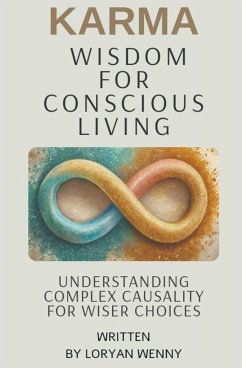Since the beginning of human civilization, there has been a search to make sense of life and discover deeper truths about our existence. A question that has captivated spiritual seekers, philosophers, and ordinary people trying to understand life's ups and downs Is: What invisible forces or universal laws might influence the unfolding of events, the patterns In our lives, the good fortune we receive or harsh knocks that come our way? Over millennia, the concept of karma has emerged in Indian, Buddhist and East Asian schools of philosophy as a law of moral causation that can help provide answers. The word karma has Its roots in ancient Sanskrit and Pali languages. It translates as "action" or "deed", but more broadly signifies the entire cycle of causation that governs existence. Simply put, karma links intentional actions to future results. It Is a natural law of cause and effect, the repercussions of thoughts, words and actions that sent out ripples into the Interconnected cosmic fabric of creation. Karma draws connections between actions in the past, present realities, and possibilities for the future. So this vast concept provides a framework for making sense of life's apparent disparities and inequalities. Why do some people face more misfortune than fortune? What leads to differences In talents, character, circumstances people are born into, even the length of their lives?
Hinweis: Dieser Artikel kann nur an eine deutsche Lieferadresse ausgeliefert werden.
Hinweis: Dieser Artikel kann nur an eine deutsche Lieferadresse ausgeliefert werden.








